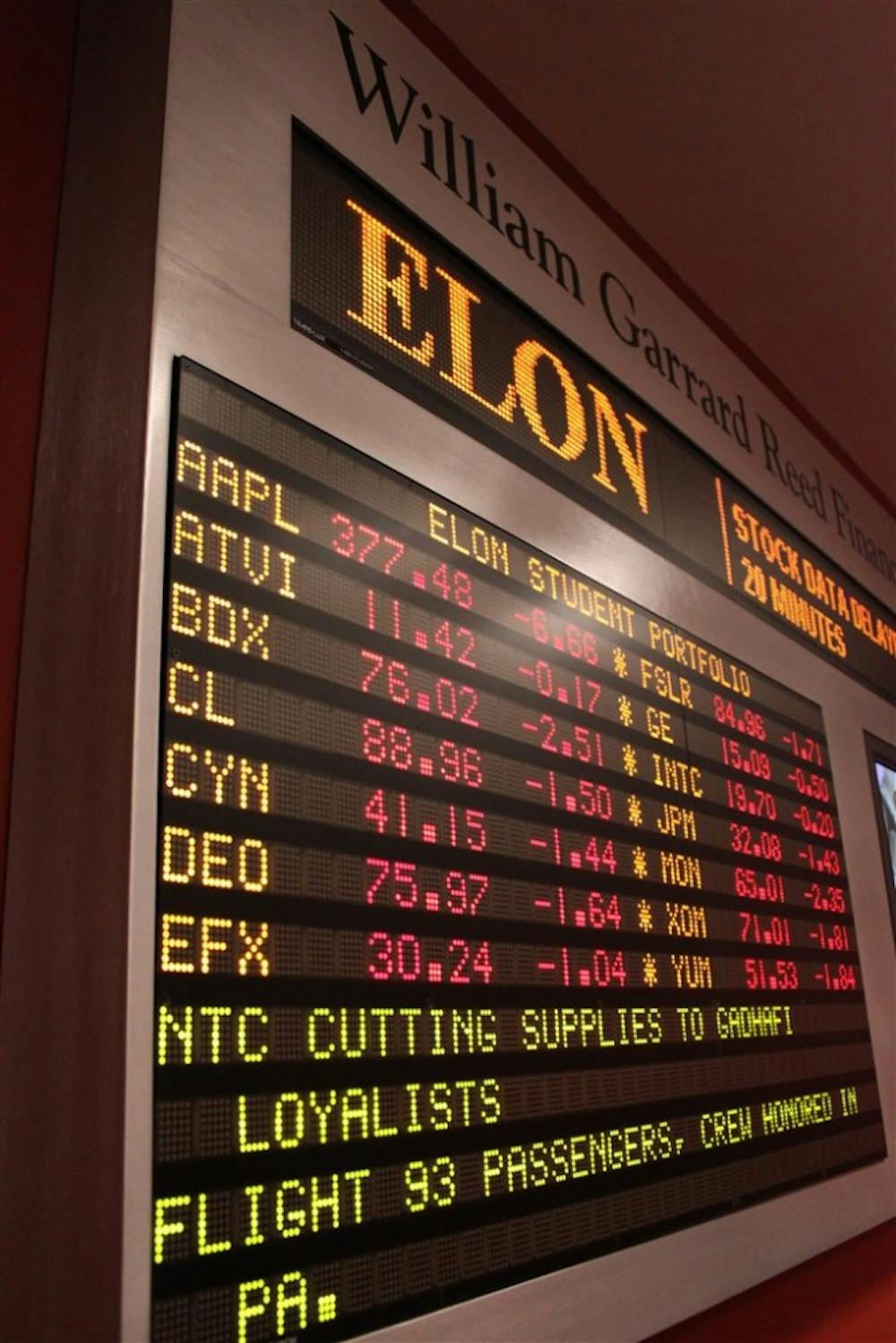Fluctuations within the economy influence individuals in terms of how much time they spend searching for a job, according to Steve DeLoach and Mark Kurt, professors of economics in the Love School of Business. Their research on the relationship between stocks and housing prices allowed them to conclude that when the stock market falls, people increase the intensity of their job search.
"We find that people are sensitive to the big shock that happened in the economy, noticeably when the stock market crashed," Kurt said. "The 50 percent drop in the stock market caused people to feel much poorer, and those unemployed people increase their search intensity by about 25 percent."
The data used in the professors' research are from the American Time Use Survey, collected by the Bureau of Labor Statistics. DeLoach was equally interested to learn about the direct impact the stock market has on individual behavior.
"It was surprising how much people's time use was related to changes in the macroeconomy," he said. "It makes sense, but it is amazing how much changes in the economy affect individual decisions like time use."
Although people may be increasing the time they spend job searching, the number of firms hiring is not increasing. This is because of the lack of money being spent, according to DeLoach.
"Firms are not hiring workers because people have not been spending money," he said. "Part of this is that households lost tremendous amounts of wealth over the past few years. Housing and stock values are down, and when people do not feel wealthy they do not spend."
The decrease in consumption began with the drop in wealth, which was caused by the housing market "bubble." This also caused a substantial amount of defaults on loans, resulting in banks having bad debt.
"That change in their balance sheets meant that banks stopped lending money, and that brought the economy, and most of the world, to its knees," DeLoach said.
He describes the economy as a cycle: without the financial markets providing loans to small business to buy inventory and meet payroll, people lose their jobs and stop spending, which ultimately hurts more firms.
But this doesn't mean give up the job search. People who have higher expectant wages are more thorough in their search, according to Kurt.
"There are different factors that motivate people to search," he said. "If you expect a high wage, you're going to search more intensively for a job."
DeLoach suggests all students take Economics 111 to understand the basics of the driving forces behind the recession. Looking ahead to when students graduate, Kurt gives advice on how to increase one's chances of getting a job.
"The way to get [a job] is by searching, using your network, going to job fairs, applying for jobs, talking to friends and trying to keep your skills sharp." he said. "That might mean volunteering, trying to do anything you can do so that your skills aren't depreciating."
More data and information can be found in DeLoach and Kurt's working paper "Discouraging Workers: Estimating the Impacts of Macroeconomic Shocks on the Search Intensity of the Unemployed.


